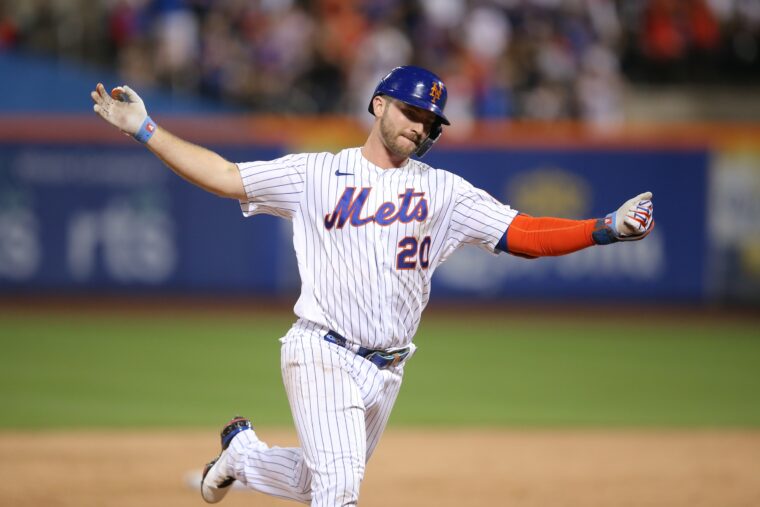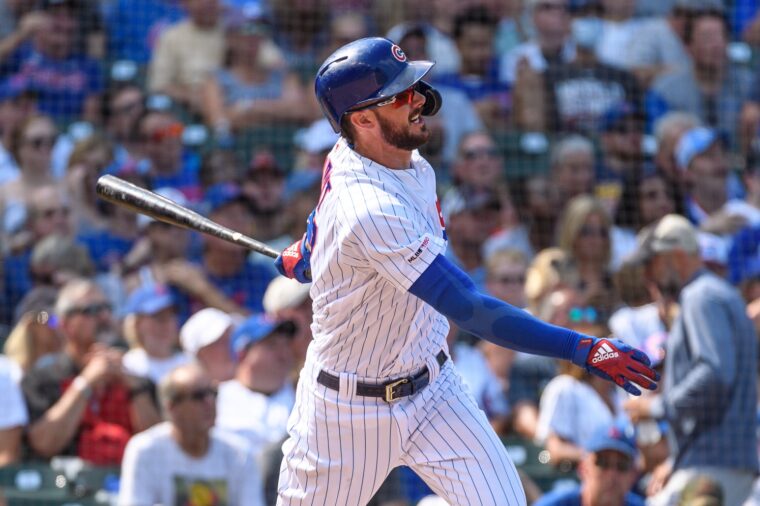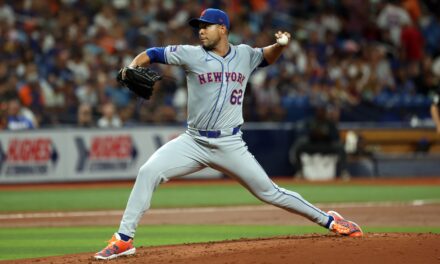
Mandatory Credit: Brad Penner-USA TODAY Sports
Pete Alonso‘s service time may be affected by the lockout and subsequent cancellation of games imposed by MLB owners, as a new story from SNY‘s Andy Martino points out.
As of the end of the 2021 season, Alonso accrued three full years of service time. This is due to him making the Opening Day roster for the team in 2019, after which he set a major-league record for home runs in a season with 53.
This is the opposite of what a typical major-league front office would do, which is hold a player in the minor leagues for the first month or so of the season, then bring them up to the majors. This affects the player’s overall service time and also how many years the team would have control of the player. (Rather than a full six years if they brought the player up, the team will get six full years, plus the majority of another season because they’d end the “sixth” season with less than six years of full service–the time needed to reach free agency.) It especially affects above-average players, who have to wait essentially a whole other season before reaching free agency so they can cash in on their talents.
An example of this is Kris Bryant, whose service time was manipulated in 2015. After coming up a month-and-a-half into the 2015 season, he ultimately won the Rookie of the Year award. He then won MVP in 2016. Despite this, Bryant made about $1.2 million during these seasons, then had to play five more full seasons before reaching free agency this offseason. He arrived at free agency for his age-30 season rather his age-29 season, when he may have been able to tack on an additional year onto a deal at a cost likely more than the $19.5 million he made under his final year of team control.

In Alonso’s case, he is projected to be a free agent after the 2024 season, which is when he’d have six full seasons of service. If he had even a day less of service time–anything less than six years–he wouldn’t be a free agent until after the 2025 season. But now, MLB canceling the first two series of the season for every team, Alonso’s service time is in question, as Martino points out.
If teams play less than the full 162-game schedule, MLB may argue that players don’t deserve a full year of service. That would then set Alonso back into the category of players who are just days or weeks shy of six years of service after their sixth season in the majors. (The 22 percent of players who get closest to six years of service but don’t pass it are known as Super 2s, and they get another year of arbitration.)
The MLB Players Association will likely not agree to any collective bargaining agreement without the assurance that all players will get a full year of MLB service time no matter how many games are played–so long as the individual player remains on the major-league roster (or injured list) the whole year. The MLBPA did the same during the 2020 season marred by COVID-19, where players who appeared on major-league rosters (or the injured list, or opted out) for the full 60-game season got a full year of service despite the league not playing 162 games.
Martino writes MLB will likely argue against players getting full-service time after canceling games, however, these are the exact type of service-time manipulations the players are trying to combat in current CBA negotiations.
On top of this, the MLBPA is bargaining for young talent, especially talent like Alonso, who are vastly underpaid. Alonso has made just $1.4 million in his first three seasons despite being one of the game’s best power hitters. He’s crushed 106 home runs with a .890 OPS and a 136 wRC+ in his first 370 games. He won the Rookie of the Year award in 2019, too. And between all this? He’s earned more money by winning the Home Run Derby twice–$1 million each time–than he has by being one of the game’s top 20-ish offensive players the last three seasons.
While common sense says this would be bad optics and a terrible idea for the owners if service time based on games played 2022 is what holds back an agreement, we’ve learned bad optics aren’t always at the top of billionaires’ lists when there is this amount of money involved.
Alonso is a rare case in that his service time wasn’t manipulated at the beginning of his career, but now, with the presence of an owner-imposed lockout and games canceled because of it, his service time may be manipulated anyway.















